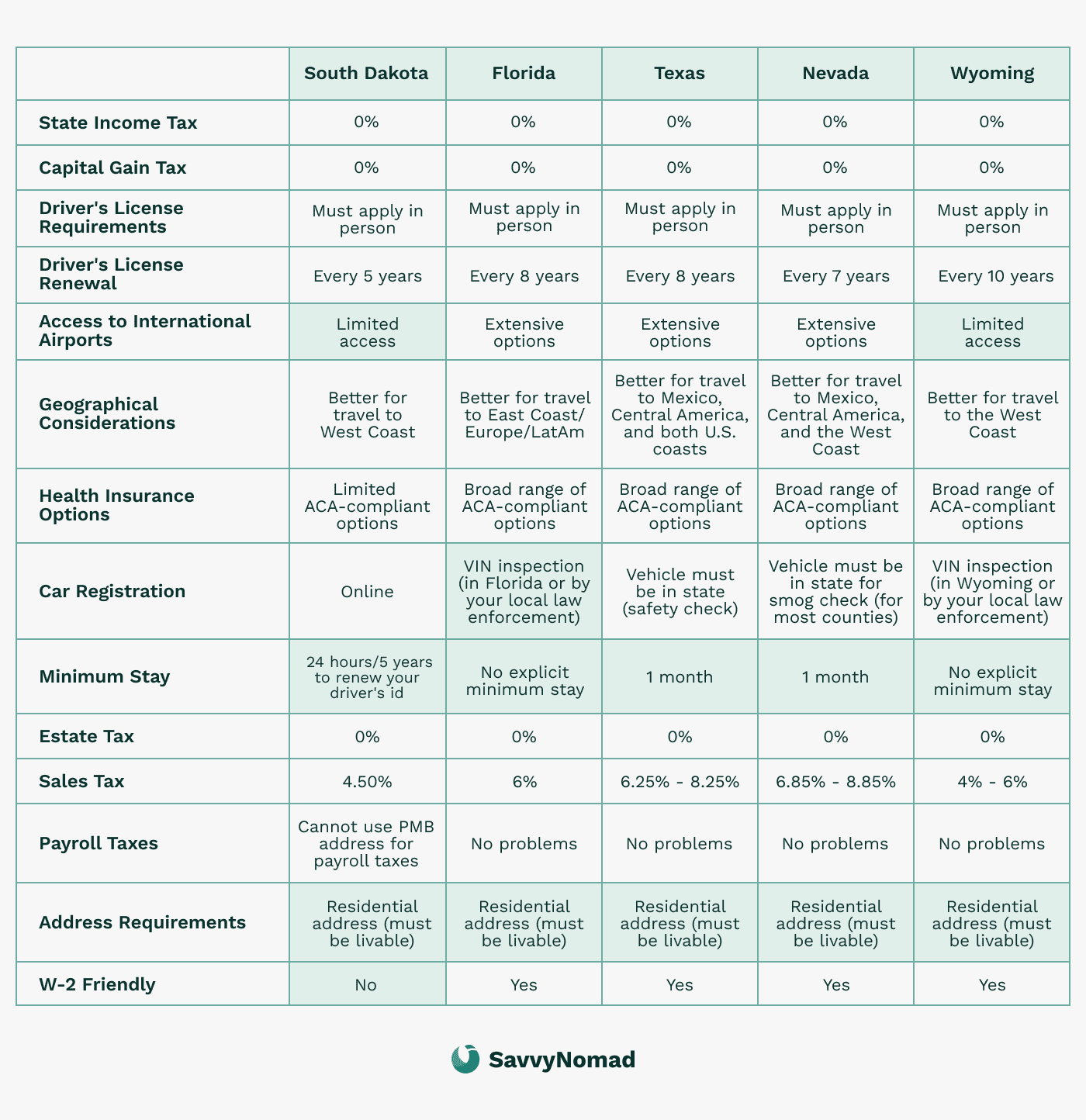How to leave Georgia (GA) residency?

Leaving Georgia residency can bring some financial benefits, especially if you’re moving to a state with lower taxes or better job opportunities. Georgia has an income tax system that applies to your worldwide income if you’re a resident, and for many people, moving to a state like Florida or Texas, which doesn’t have state income taxes, can save a lot of money.
But moving isn’t just about finding a new place to live—you also need to make sure you officially sever your ties with Georgia so that you aren’t taxed as a resident anymore. This guide will walk you through the important steps you need to take to establish a new domicile, cut your connections to Georgia, and manage any Georgia-based income that could still be taxable.
Whether you’re leaving for a new job, retirement, or just a change in lifestyle, following these steps can help you avoid extra taxes and make your move smoother.
Step 1: Establish a new domicile
The first step in leaving Georgia residency is establishing a new permanent home, or domicile, in another state. This means more than just physically moving—you need to take steps that show you intend to live in the new state long-term. Here’s how you can get started:
1) Establish new residency
- Secure a residential address: Find a place to live in your new state, whether it’s through renting or buying a home. Many states, like Florida, offer tax benefits such as the homestead exemption, which could help lower your property taxes. Setting up a permanent residence in your new state is essential to proving that you’ve left Georgia.
The address is provided solely for documentary and correspondence purposes related to client-direct banking or brokerage verification; it is not for business registration, public listing, or general mail forwarding. Banks and state agencies make their own decisions, no specific outcome is guaranteed, and prior-state rules may still apply.
- File a Declaration of Domicile: Some states, like Florida, allow you to file an official document called a Declaration of Domicile to prove that you intend to make this new state your permanent home. This is especially helpful if you’re moving from a state with significant tax obligations, like Georgia.
Residency guides:

2) Relocate your belongings
Move your personal belongings to your new home in the state. This helps show that your move is permanent, as you are transferring your life to a new location.
3) Spend time in your new state
Spending significant time in your new state is another way to prove your residency. Try to minimize the amount of time you spend in Georgia during this transition to avoid being taxed as a resident there.
4) Transfer IDs and vehicle registrations
Transfer your driver’s license and vehicle registration to your new state as soon as possible. This shows that your life is now centered in your new state, not in Georgia.
5) Register to vote
If you are eligible, you may register to vote in your new state. Voter registration is one supporting indicator of domicile—not determinative on its own. For eligibility and procedures, follow guidance from election officials in both states, and if you are eligible to vote in the new state, you can also cancel your voter registration in Georgia.
6) Update financial accounts
Make sure your bank accounts, credit card statements, and other financial documents reflect your new address. Keeping these records up to date will show that your finances are now based in your new state, not in Georgia.
7) Notify your employer
Notify your employer of your new address so that your payroll and tax withholdings reflect your new state. This can help you avoid being taxed by Georgia after your move.

Step 2: Sever ties with Georgia
Once you’ve established a new domicile, it’s time to officially cut your ties with Georgia to help demonstrate that the state should no longer consider you a resident for tax purposes.
Here’s how you can sever your connections with the state:
1) Close Georgia financial ties
- Close local bank accounts: If you have Georgia-based bank accounts, consider closing them and transferring your funds to banks in your new state. This demonstrates that your financial life is now rooted in your new home.
- Update personal records: Update your address with the IRS, Social Security, and any other relevant entities. Keeping all personal and financial records in your new state helps solidify your move.
2) Sell or lease property
If you own property in Georgia, selling it is one of the clearest ways to show that you no longer reside in the state. Alternatively, leasing the property on a long-term basis can also demonstrate that you don’t maintain significant ties to Georgia.
3) Cancel local subscriptions/services
Make sure to cancel memberships, subscriptions, and services tied to Georgia, such as gym memberships, utility services, and local clubs. Maintaining these services could suggest that you’re still tied to the state, so it’s best to transfer or cancel them.
4) Transfer healthcare and insurance
Update your healthcare providers to those in your new state, and make sure your health insurance reflects your new address. This demonstrates that your day-to-day life is now rooted in your new state, further supporting your non-residency in Georgia.

Step 3: Time spent outside Georgia
After establishing your new domicile and severing ties with Georgia, it’s still crucial to track the amount of time you spend in the state. Georgia treats you as a resident if you maintain a permanent home in Georgia or spend more than 183 days there during the year, so managing both your ties and your day count is important if you want to avoid being treated as a Georgia resident for tax purposes.
183-day rule
What is the 183-day rule?: If you spend 183 days or more in Georgia in a calendar year, you may be considered a resident for tax purposes, even if you’ve moved to another state. This means you could be liable for state income taxes.
Stay under 183 days: Once you’ve genuinely moved your domicile and ties to another state, keeping your time in Georgia under 183 days each year can help you avoid being treated as a resident under Georgia’s day-count test. A day counts if you are in Georgia for any part of it, even just a few hours.
How it works: A day counts as a full day in Georgia if you’re present in the state for any part of it. So, even if you only spend a few hours in Georgia before traveling to another state, that day still counts.
Keep detailed travel records
Why it’s important: If your residency status is ever questioned, having detailed records of your time spent in and out of Georgia will be essential for proving that you’ve stayed under the 183-day limit.
What to document: Keep copies of flight tickets, hotel receipts, and any other documents that show when you entered and left Georgia. This will help protect you in case the Georgia Department of Revenue audits your residency status.
By keeping careful records and staying under the 183-day benchmark after you’ve shifted your domicile, you can strengthen your case for nonresident status and help minimize your Georgia tax obligations.
Step 4: Georgia-sourced income
Even after successfully leaving Georgia residency, you may still have tax obligations if you continue to earn income from sources within the state. Here’s how to handle Georgia-sourced income:
1) Ongoing tax responsibilities
If you continue to earn income from Georgia, such as rental income, business profits, or wages, you’ll need to file a non-resident Georgia tax return. This helps Georgia tax only the income sourced from Georgia, while income from other states is generally handled under the rules of those jurisdictions.
2) Rental or business income
If you own rental property or a business in Georgia, any income generated from those sources will still be subject to Georgia state taxes. It’s important to consult with a tax professional to stay compliant with Georgia tax laws, especially if you have complex income streams that tie back to the state.





